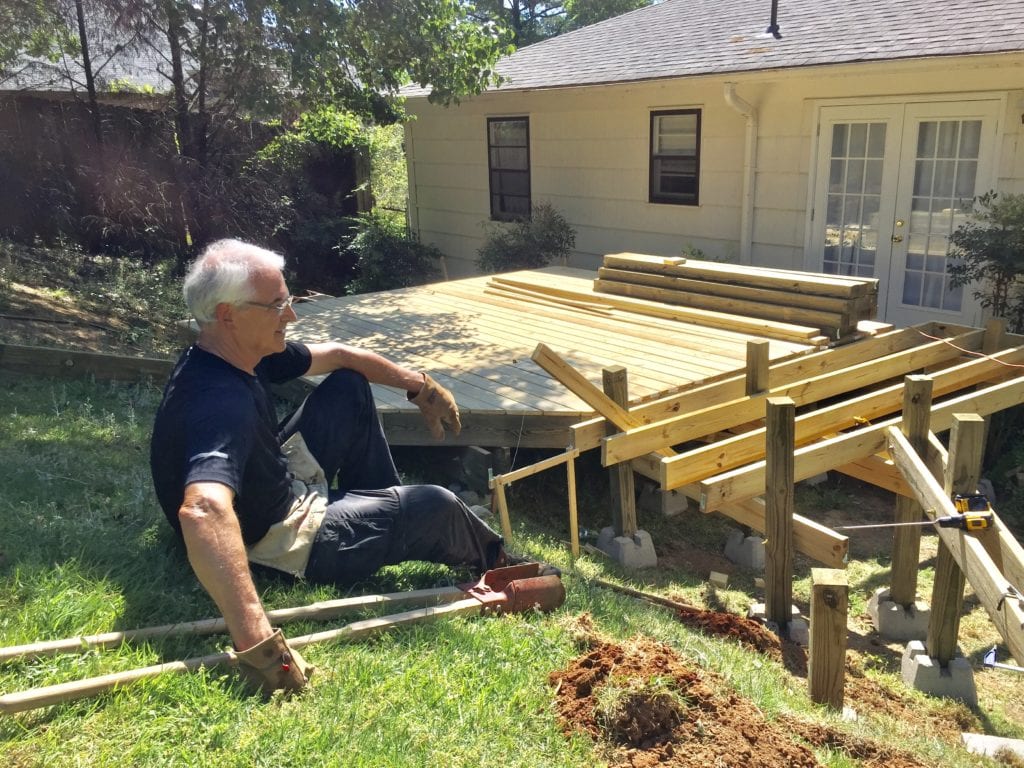It Starts with an Idea …

to get the job done.
… because someone, an individual or a group, has identified a need, or they’ve identified a problem in the community. And they either think or say, “Somebody ought to do something about this.” And then the wheels begin to turn. An individual has a need, a community has a problem, and somebody is able to see it as an opportunity to build something.
Sometimes that somebody realizes or decides that the Church can help.
Partnering Is Something That Churches Are Highly Equipped to Do
Congregations often get involved when a church member or church leader sees a need or has a really fine idea. Take, for example, the following:
- The church that adopts a school in response to the uniform or supply needs of local students.
- The church whose volunteers address housing needs in the community by renovating or building homes.
- The church that sends a family across the world to offer support to a struggling missionary family in Indonesia.
- The church that provides bus pick-up for kids at a nearby trailer park who otherwise would have no church access or interest.
And the Church has been partnering for a long time. Seeing uneducated children roaming the streets, it was Roberts Raikes who with the help of Methodists in Gloucester, England, started the first Sunday School in 1780. Not to mention, many of our world’s greatest educational institutions and hospital/health systems are the result of great partnerships in or with the Church.
Let the Church Set the Table
One of the great things about the Church as a partner is that it brings so much to the table. The highly motivated church brings volunteers, money, ideas, various forms of expertise, leadership, organization, a desire to serve,… Share on XSometimes a community agency does great work and offers significant expertise, but needs additional financial or volunteer resources that the church can provide. Why not give the church a chance?
A Few Tips If You Have the Idea or See the Need
- Start with your pastor. If you can get the congregation’s leader involved, he or she may be able to point other people and resources your way.
- Be ready to roll up your own sleeves. If you’re not convinced enough to get involved yourself, don’t expect others to just do it for you.
- Be ready to state the case. Develop a stump speech which will quickly and succinctly communicate why the need is so urgent or worthy of the congregation’s involvement. And know it by heart.
- But the smallest of challenges is worthy of your effort. A cup of cold water for a thirsty stranger makes Jesus smile.
A Few Tips If You Want Your Church to Partner with Worthy Causes
- Work to see that your congregation has a worthy vision for itself, that recognizes its calling to address the needs of the world around it. Unless a church has a strong vision, it can lack the motivation for creative partnerships.
- Become the champion for partnering through your congregation. Become the eyes and ears of the congregation in the community, looking and listening to identify the needs of people around you.
- Encourage an entrepreneurial ministry mindset that encourages investment in causes and partnerships.
- If your church decides to become a partner in ministry, make sure to develop a relationship agreement that states the purpose of the partnership, as well as what the church and others involved are offering and expecting. Relationship agreements are not contractual, i.e. they may be entered into or withdrawn from at any time. They simply reflect an agreed understanding.
A Few Tips If Your Agency Outside the Church Needs Help That the Church Can Bring
- Ask your board of directors, staff, or volunteers if they are in churches that may be prepared to help, and ask them to go with you as you visit the pastor.
- Be prepared to show how your agency will be significantly helped, how church members will be involved in meaningful work, and even how you will be able to relate what they are doing to the faith journey that they are walking.
- If your agency decides to partner with a church, make sure to develop a relationship agreement (see above) so that roles and expectations are clear.
Conclusion
Sometimes the Church lights the fire; sometimes it adds more fuel, sometimes it tends the fire that runs the engine. But a congregation can be a GREAT partner in addressing the needs of people. Share on XIf you want to explore more about engaging the Church as a ministry partner, email me at david.carroll@ministryarchitects.com. I’d love to spend some time talking with you about bringing people and churches together for the good of all God’s children.

